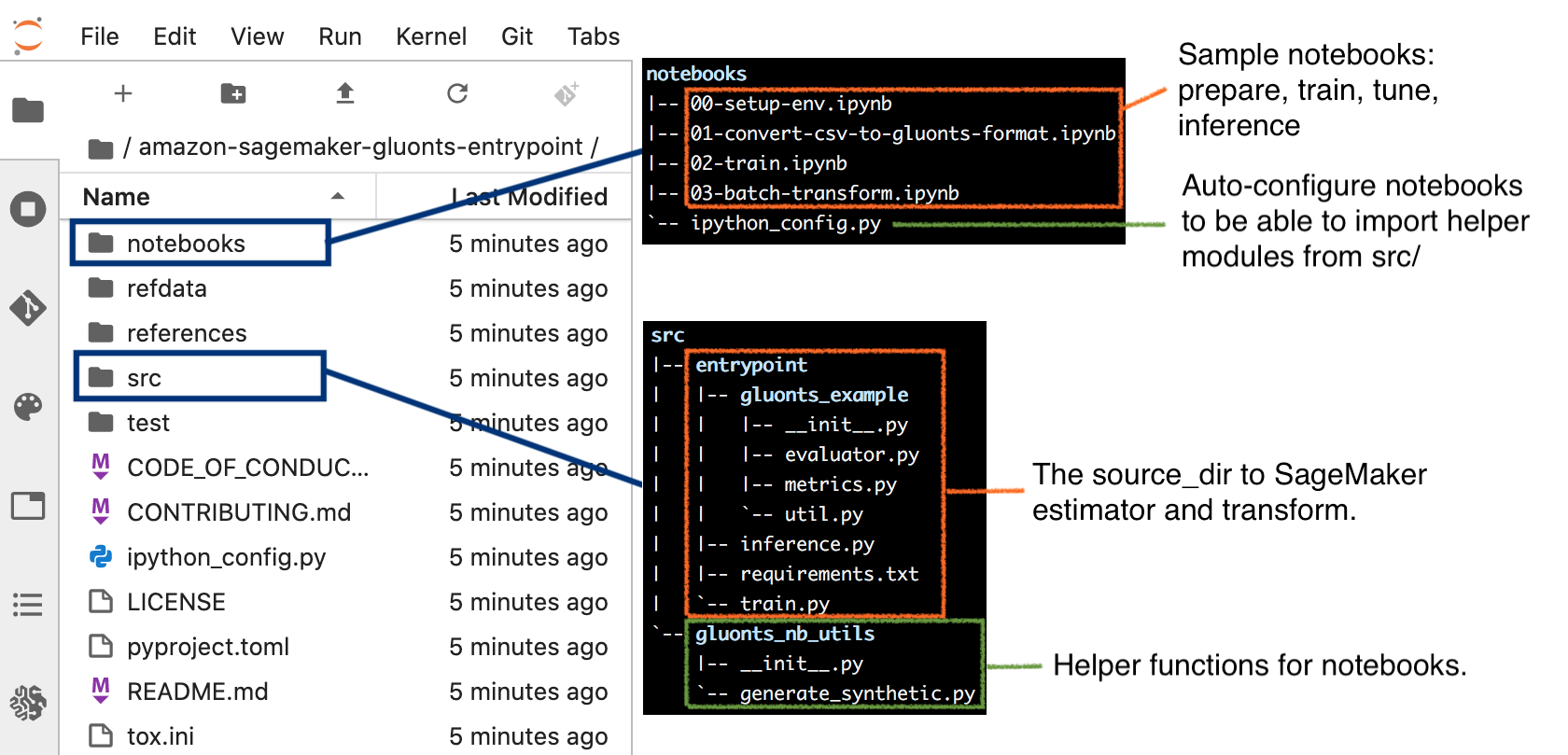This repository contains the example that supplement the blog post on using GluonTS to develop custom product demand forecasting on Amazon SageMaker, and generate demand forecasts for each products with custom models.
UPDATES:
- the
mainbranch has been updated to gluonts-0.8 and mxnet-1.7.- the
blog-versionbranch contains the code referred by the blog post. This branch uses gluonts-0.5 and mxnet-1.6
The sample notebooks demonstrate faster experimentation with multiple custom models. The changes involves only parameteric changes to the entrypoint train script.
The entrypoint train script utilizes GluonTS to work with time series data in a simpler fashion, and to access many state-of-the-art custom models in the GluonTS library. The novelties demonstrated by the script include:
-
a single generic train script that supports multiple built-in algorithms in GluonTS.
-
Guide modular style implementation in notebooks and entrypoint scripts.
-
The train script passes through hyperparameters which it receives as command line arguments, directly to the specified GluonTS estimator.
-
The entrypoint train script does not need to explicitly declare all those hyperpameters in its body.
-
This functionality utilizes another sample repository: aws-samples/amazon-sagemaker-entrypoint-utilities, a dependency that the entrypoint train script declares in its
requirements.txt
-
-
At the end of training, the train script performs backtesting on a test split. Then, the script outputs to files the backtest performance metrics, the forecasts resulted from test split, and backtest plots of all timeseries as montages and individual plots.
-
This is done by design, and the aim is to let data scientists quickly analyze their model performance without having to separately run inferences (and additional downstream tasks for plotting etc.).
-
This functionality utilizes another sample repository: aws-samples/smallmatter-package, a dependency that the entrypoint train script declares in its
requirements.txt
-
See CONTRIBUTING for more information.
This library is licensed under the MIT-0 License. See the LICENSE file.
